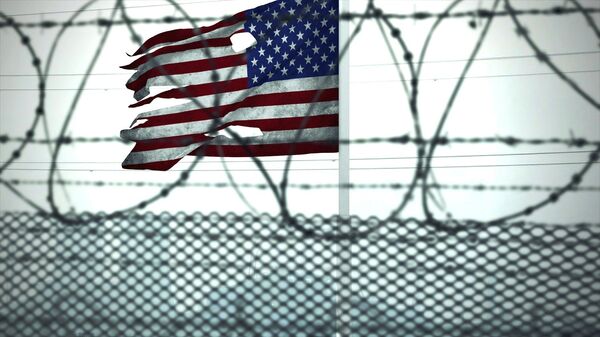On Thursday, solitary confinement in New Jersey was drastically restricted after Democratic Governor Phil Murphy signed a bill that capped such detention at a maximum of 20 consecutive days, or 30 total days, in the course of a 60-day period.
The bill also designates certain restrictions on the isolation of “vulnerable populations,” such as those under the age of 21 or over the age of 65, individuals with mental or physical disabilities, members of the LGBTQ community and more.
Similarly, the North Carolina State Senate recently passed, with unanimous approval, the Prison Reform Act, which will work to investigate alternative structures for the state’s Division of Adult Correction and Juvenile Justice.
To discuss the impact of the prison system and solitary confinement on both the human body and the greater US society, Radio Sputnik’s By Any Means Necessary was joined on Thursday by Bonnie Kerness, advocate and program director at the American Friends Service Committee’s Prison Watch.
“The whole concept of solitary [confinement] violates the United Nations covenant and treaty that the United States has signed. The impact depends on whether you’re a social prisoner being placed in solitary confinement or a political prisoner,” Kerness explained to hosts Eugene Puryear and Sean Blackmon. “Very often what we saw was that the people with a political head understood clearly why they were there and were able to keep their minds active and free, while the social prisoners struggle mightily with mental health issues.”
“The [mental] damage is permanent,” the advocate stressed, describing it as post traumatic stress disorder.
“Prisons are a fluid development from slavery, and we know this because we read the 13th Amendment, which tells us this: slavery is abolished, except for prisons,” Kerness highlighted.
The advocate brought up one definition of genocide, as used by the UN, which is “forcibly transferring children of the group to another group.”
She asserted that family separation, a red hot topic today because of the detention facilities near the US-Mexico border, has been “historical US policy” since the inception of slavery and the subsequent slave trade within the US.
“It’s a domestic war, and we need to begin looking at it very differently. This is not protecting society. We’ve replaced a social safety net with dragnet,” Kerness pointed out. “There is a lot of money being made off those black and brown bodies.”
While Kerness noted that in the past she has publicly stated that it costs some $30,000 a year to keep an underage individual within a youth facility, last month she was informed by someone from the Department of Corrections that the actual number was somewhere closer to $130,000 annually.
“What could we do with that money for that kid, for that kid’s family and for the community? It’s a dragnet rather than a social safety net. An abolition of these places, an abolition of these practices depends on changing that and flipping that around.”




